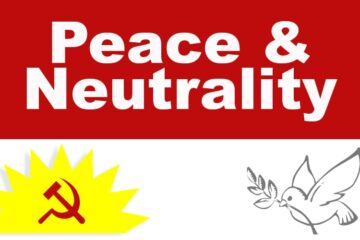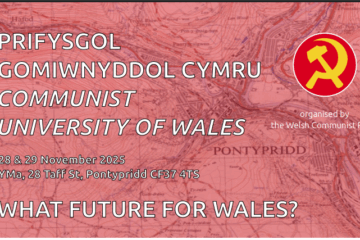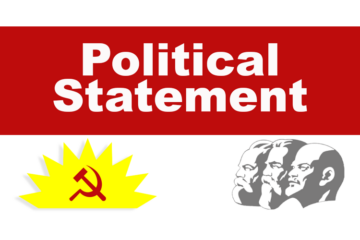The “Northern Ireland Protocol” negotiations are best characterised as part of the inter-imperialist struggle between the EU and Britain with regard to the latter’s future trading relationship and access to markets within that bloc. They are about securing Britain’s future relationship with the EU and are not about the Irish people north or south of the British imposed border.
The “protocol” has exposed Britain’s disregard for “Northern Ireland”, in that it has effectively ceded economic control to the EU and drawn a border down the Irish sea. Both the EU and Britain will use Ireland to assert their own internal interests. Ireland as a whole is economically marginal to the interest of either Britain or the EU. Neither the Irish ruling class or the Unionists are involved in the negotiations, other than as bit players. The negotiations confirm the life experience of many colonised and dominated peoples and nations: that imperialism has only interests to pursue and only temporary friends.
The current impasse results from the ongoing differences within the British Conservative Party. One group, centred around the European Research Group (ERG), are using the DUP and the Protocol to force the Conservative government to push for a much harder Brexit than the one currently being negotiated by the Sunak government. Sunak represents the interests of British finance capital who are keen to conclude a deal with the EU that reflects their interest to have minimum Brexit and maximum cooperation with the EU. The real stumbling block is not the Protocol but the extent and role of the European Court of Justice.
The Protocol, having the border between Britain and the EU running down the Irish Sea in the face of unionist opposition, has the potential to weaken the east/west relationship between the 6-counties and Britain. British imperialism is shifting its alliance away from Unionism to developing its influence with the Irish state and the ruling bourgeois elite. Despite the trade ruptures caused by Brexit, British imperialism’s primary ally in Ireland today is the Irish bourgeoisie. Placing the EU/UK border in Ireland would be a set-back for that relationship.
The introduction of the Irish Sea border was originally accepted within the Unionist establishment, selling it that it would be good for business to have access to both the EU and the British markets, as well as an opportunity to attract inward investment. The current impasse is causing internal divisions within the DUP. Donaldson is more willing to facilitate Sunak, reflecting the needs and interests of the Unionist business sector who are content with the Protocol as it stands. MPs like Sammy Wilson are willing to be used by the FRG and have alluded to loyalist para-military opposition to the Protocol.
A declining industrial base and the impact of demilitarisation have weakened Unionism’s ability to deliver jobs and influence to its political base. This has added to the alienation felt by many working-class Unionists. Alienation, bitterness, and a sense of loss felt by those communities have been channelled through the protocol. They feel betrayed by Britain. However, in at least the short to medium term, this is unlikely to lead of any re- assessment of their position in Ireland. For well over 100 years they have been fed on a diet of supremacy and sectarianism, and their response, if any, to what they see as a British betrayal is likely to support the more extreme manifestations of loyalism.
However the protocol reflects Unionism’s growing alienation from the British ruling class and its declining economic influence and as such presents opportunities to raise social and political demands that have the potential to appeal to class loyalties across the sectarian boundaries fostered and nurtured by imperialism in the north-east of our country.









